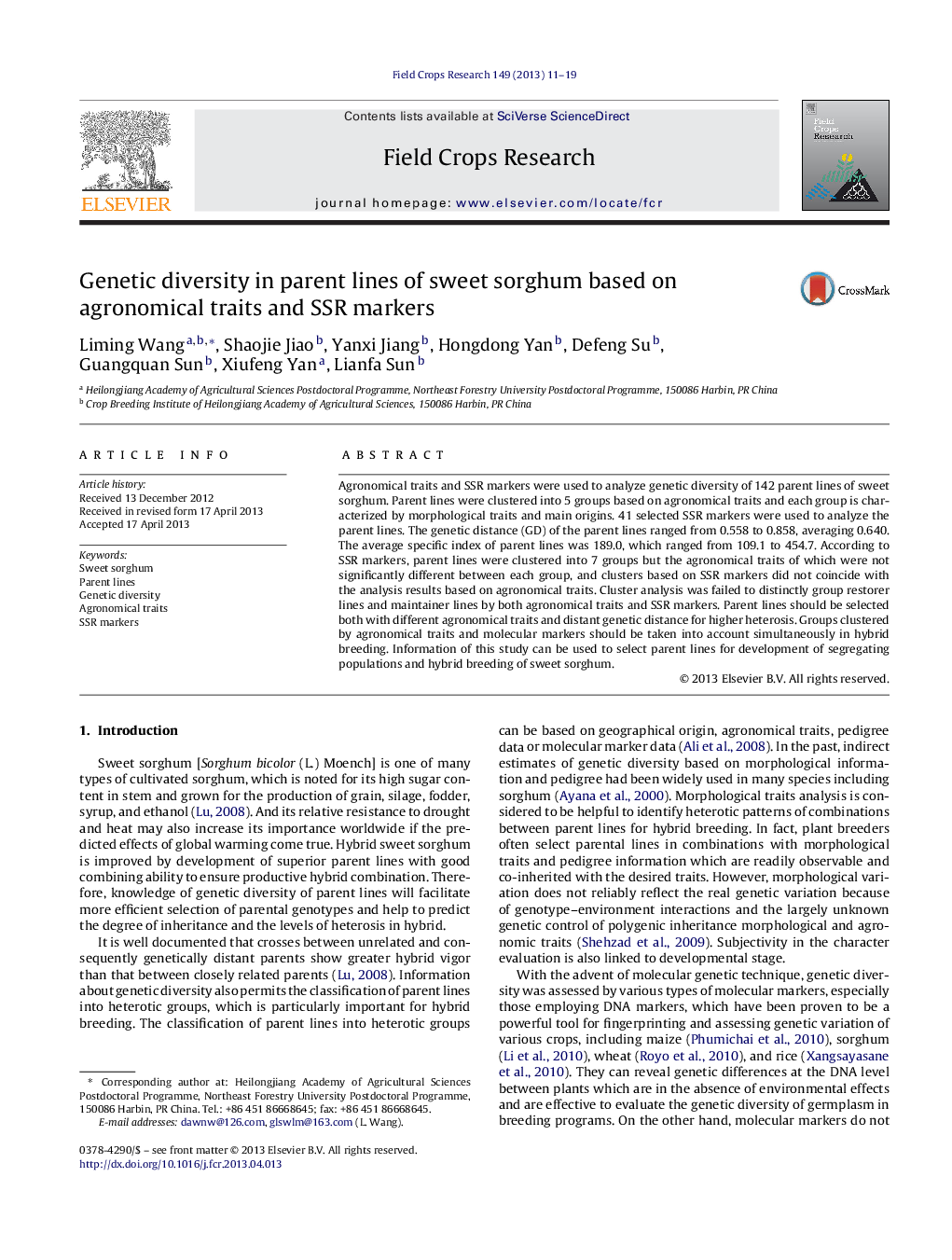| Article ID | Journal | Published Year | Pages | File Type |
|---|---|---|---|---|
| 6375229 | Field Crops Research | 2013 | 9 Pages |
Abstract
Agronomical traits and SSR markers were used to analyze genetic diversity of 142 parent lines of sweet sorghum. Parent lines were clustered into 5 groups based on agronomical traits and each group is characterized by morphological traits and main origins. 41 selected SSR markers were used to analyze the parent lines. The genetic distance (GD) of the parent lines ranged from 0.558 to 0.858, averaging 0.640. The average specific index of parent lines was 189.0, which ranged from 109.1 to 454.7. According to SSR markers, parent lines were clustered into 7 groups but the agronomical traits of which were not significantly different between each group, and clusters based on SSR markers did not coincide with the analysis results based on agronomical traits. Cluster analysis was failed to distinctly group restorer lines and maintainer lines by both agronomical traits and SSR markers. Parent lines should be selected both with different agronomical traits and distant genetic distance for higher heterosis. Groups clustered by agronomical traits and molecular markers should be taken into account simultaneously in hybrid breeding. Information of this study can be used to select parent lines for development of segregating populations and hybrid breeding of sweet sorghum.
Related Topics
Life Sciences
Agricultural and Biological Sciences
Agronomy and Crop Science
Authors
Liming Wang, Shaojie Jiao, Yanxi Jiang, Hongdong Yan, Defeng Su, Guangquan Sun, Xiufeng Yan, Lianfa Sun,
